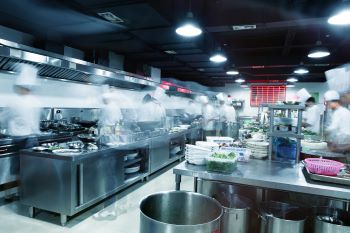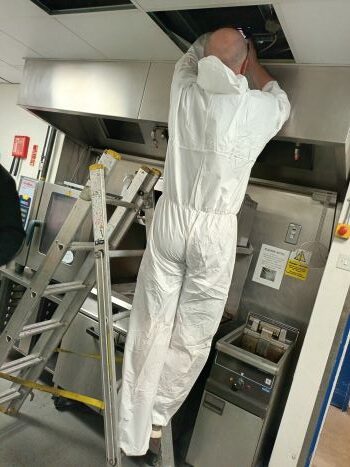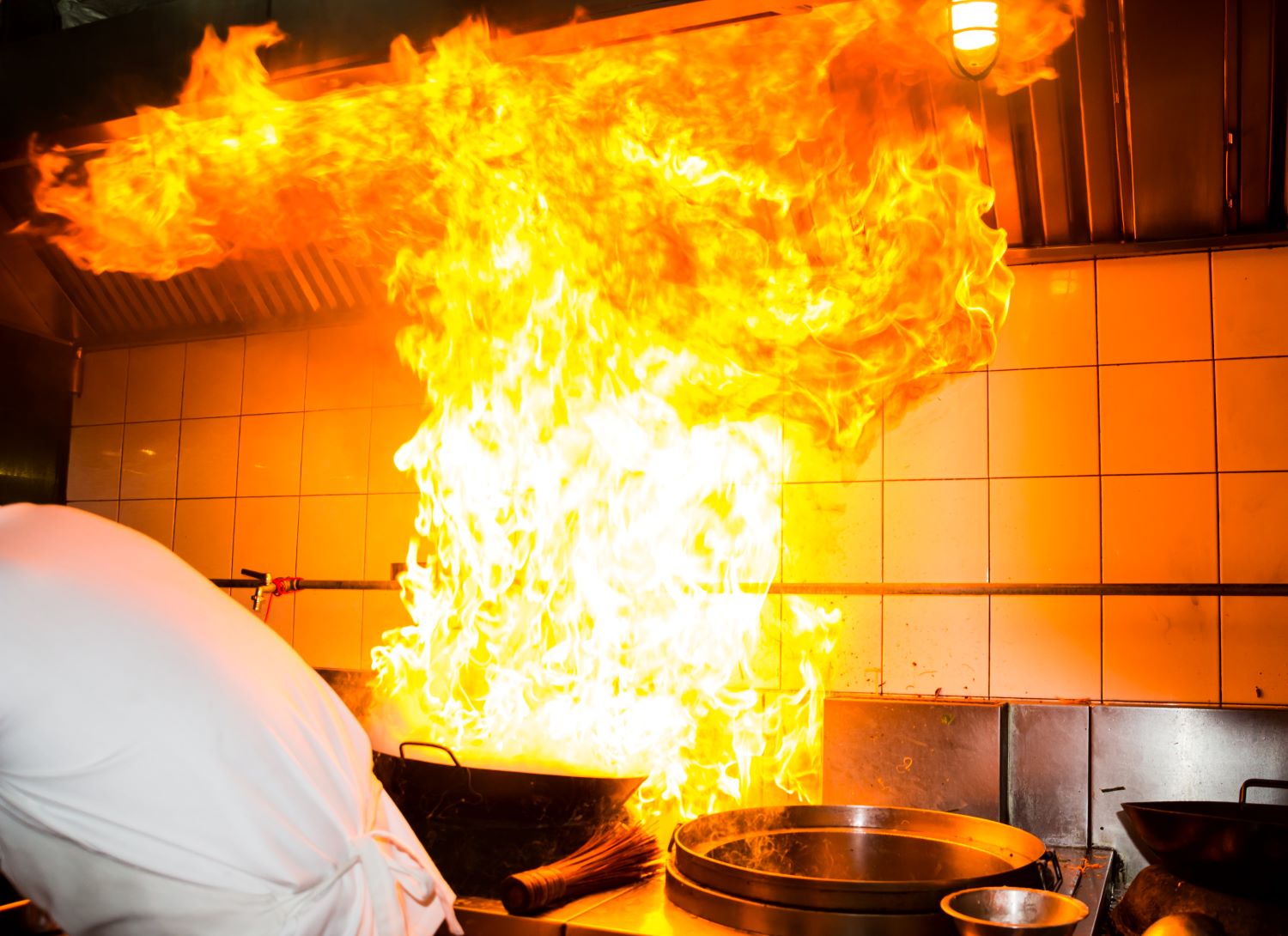Preventing Kitchen Extract Fires This Summer – What You Need to Know
As temperatures rise and kitchens get busier, especially in restaurants and commercial food establishments, the risk of kitchen extract fires increases significantly. Summer often brings higher footfall, longer operating hours, and more strain on kitchen systems – all of which can contribute to a serious fire hazard if your extraction system isn’t properly maintained.
In this blog, we’ll explore why kitchen extract fires pose a greater risk during the summer and highlight the critical importance of regular kitchen extraction cleaning. We’ll cover the key dangers to watch for, the regulations you need to follow, and the practical steps you can take to reduce fire risk, meet safety standards, and keep your kitchen operating smoothly throughout the busy season.
The Hidden Fire Risk Inside Your Extraction System
Kitchen extraction systems consist of ducts, hoods and fans which are designed to effectively remove heat, smoke and grease-laden vapours from the cooking environment. This helps to maintain safe and comfortable working conditions, while also reducing the risk and spread of fire and ensuring compliance with health and safety regulations.
However, over time, grease and oily residues can build up inside these systems and without proper cleaning, this accumulation becomes a highly flammable fire hazard. All it takes is one spark or high-temperature flare-up, and that hidden grease can ignite, sending flames rapidly through the ductwork and spreading to other parts of the building.
Kitchen extract fires can be devastating, often resulting in costly damage, loss of business, and serious safety risks for staff and customers.
Why Commercial Kitchens Face Greater Fire Risks

Fire risk is a serious concern in any cooking environment, but it’s especially critical in commercial settings. With higher output, heavier usage, and more complex systems, the stakes are much higher – especially during busy summer months.
Here are some of the key reasons commercial kitchens face higher fire risks:
- Higher grease output – With large-scale cooking and deep frying, commercial kitchens generate significantly more airborne grease and oil particles, which quickly settle in ducts and fans.
- Continuous operation – Many commercial kitchens run for long hours or even around the clock, leaving little downtime for cooling or cleaning. This constant use accelerates residue build-up.
- Overloaded extraction systems – During peak periods, extraction systems are pushed to their limits. If not properly maintained, they become inefficient and more prone to dangerous blockages.
- Larger and more complex ductwork – Bigger kitchens often have extensive extraction networks, which can make thorough cleaning more difficult and allow grease to accumulate unnoticed in hard-to-reach areas.
- Strict legal and insurance requirements – Commercial kitchens must meet specific hygiene and fire safety regulations. Failing to keep extraction systems clean can result in fines, insurance issues, or even forced closures.
Staying Compliant and Fire Safe This Summer
Preventing kitchen extract fires starts with proper maintenance and in the UK, that means following TR19®Grease, the industry recognised specification for kitchen extract cleaning. Developed by the Building Engineering Services Association (BESA), TR19®Grease outlines best practices for cleaning frequency and thoroughness to minimise fire risks and ensure legal compliance.
According to TR19®Grease, cleaning frequency depends on usage levels, with high-use kitchens requiring professional cleaning as often as every three months or less. Regular inspections, carried out by certified specialists, and detailed documentation are essential not only for fire safety but also for meeting insurance and regulatory obligations.

Here are a few key steps to stay safe and compliant this summer:
Schedule professional cleanings – Ensure your extraction system is cleaned by qualified specialists in line with the TR19®Grease specification.
Adjust for seasonal demand – Summer often brings increased footfall and longer hours. Cleaning schedules should reflect this higher usage to prevent dangerous build-up.
Maintain documentation – Keep accurate records of all inspections and cleanings. This supports compliance, helps with insurance claims, and demonstrates due diligence.
Train your team – Make sure staff understand the importance of filter maintenance and daily surface grease removal as part of the broader fire prevention strategy.
Don’t Wait Until It’s Too Late A fire can do more than damage your kitchen; it can threaten lives, disrupt business, and harm your reputation. This summer, take proactive steps to keep your extraction system clean, compliant, and fire safe. Remember that fire prevention starts with awareness and the right cleaning strategy.
Read more https://www.swiftclean.co.uk/kitchen-extract-cleaning/




